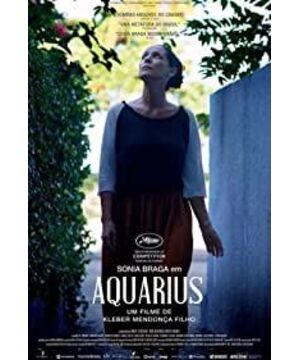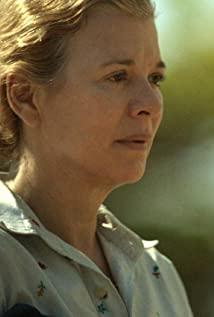When I opened the list of films for the main competition in Cannes, it was no surprise to see the name of Kleber Mendoza Jr. at a glance.
The young director is almost a newcomer at Cannes.
Kleber Mendoza Jr.
After graduating from journalism, he worked as a film critic for 13 years. Since the 1990s, he has gradually tried to direct documentaries and feature films, but most of them are short films.
Kleber Mendoza Jr.'s first feature film "The Sound of the House" was widely acclaimed after its screening in Rotterdam. Then, in 2016, his second feature film "Aquarius" was selected for the main competition in Cannes. "Barclau" was once again shortlisted for the 2019 Cannes main competition, which also showed Cannes' favor for young directors.
"Barclay"
This is, of course, one of the changes that Formo has brought about.
In recent years, more and more newcomers have appeared in the main competition unit of Cannes, and there are even directors like A.B. Schucky who entered the main competition with a debut film last year.
In the past, young directors were content with "a concern", and the situation that the main competition unit was given to the masters is gradually changing. Of course, this also means that young directors in Cannes will receive more attention.
Pay attention to the new directors of Cannes, maybe, among these directors, someone will trigger another new wave.
01
Thirteen years of film critic transformation director
After years as a film critic and journalist, Mendoza Jr. called the transition "natural."
He once worked as a film critic for thirteen years, much longer than his years as a director. During these thirteen years, he also produced his own short films. For example, "The Meteorite of Recife", "Electronics", "Green Records" and so on.
Kleber Mendoza Jr.
These short films were very successful for Little Mendoza. After shooting many short films, he began to shoot his first feature film "The Sound of the House". He found it difficult to juggle the work of film critic and director. , so he quit his job and began to concentrate on filming.
"The Room Sound"
Mendoza Jr. may not be one of those directors who scoffed at critics. After all, he wanted to be a critic since he was a boy. "That's because there are some movies I don't want to recommend to anyone."
Movies connect with the world and culture in a beautiful way.
Thirteen years of experience have allowed him to understand film at all levels before becoming a director. Commercial and author films contrast and complement each other.
"See for yourself"
Little Mendoza's favorite movie is Elim Klimov's "Go and See For Yourself," a Belarusian war film of World War II. Aside from Elim Klimov, one of the directors who had the greatest influence on Mendoza Jr. growing up was John Carpenter.
Little Mendoza appreciates the "feasibility" of John Carpenter's films. He believes that John Carpenter's works can always stimulate a director's creative desire: the investment is small, but the power of the film is extremely powerful. Get the audience excited about the film.
"Moonlight" (1978) John Carpenter
The American films of the 1970s had no small influence on him.
But Mendoza Jr.'s personal preference is more interesting: He believes that American directors made the best adult films during this period.
Making films for adults is especially important to him, and today, the grading of films is an issue that must be considered.
Any Hollywood film that shows too much blood and violence on the screen inevitably has to consider whether the audience will accept it, so "many commercial films seem to be afraid of children watching, and when there are scenes of sex on the big screen The films become more tense, and it doesn't feel like an adult exchange at all."
For Mendoza Jr., this is a disservice to the film: "If you don't have to worry about which audience is watching, the film is more interesting."
Sexuality should be a part of life, and this view is in the life of "Aquarius" Clara, manifested like a duck to water.
"Aquarius"
Under Mendoza's lens, sex is presented to the viewer in a very natural and normal way. On this point, he obviously couldn't reach a consensus with Lars von Trier.
"In most British and American films, sex is usually death, sickness, mental illness, pregnancy, and a whole bunch of embarrassment and humor with it. It's really disgusting."
Little Mendoza's film "Aquarius" was judged by critics as extremely literary, even a sly social commentary.
His in-depth portrayal of characters and the various metaphors interspersed in the film all suggest that the director has long used the perspective of an observer to analyze society as a whole.
Even Clara, the heroine of Little Mendoza's film, has a subtle overlap with himself.
This is a famous retired music critic who lives in her old apartment with a coveted vinyl collection when developers try to talk to her about demolition and redevelopment When building, this stubborn middle-class lady acted as a "nail house" with firmness and decisiveness.
"Aquarius" actress Clara
This coincidence belongs to Mendoza's cunning: "Some people ask me 'Is this protagonist yourself?' I will pretend to say: 'No', the protagonist is a music critic, and I am a film critic." But in fact, this is exactly what he put into himself: "When I was a film critic, everyone always felt that my views were a bit negative, which made people think that I didn't like anything. This may be an anti-intellectual tendency."
Did the long writing as a script writer for Mendoza Jr. help? For his part, year-round training does help him create better screenplays, but writing remains a mysterious area.
"There's a lot of people defining what constitutes good writing, but the story itself is there."
"The Room Sound"
Even though Mendoza Jr. is satisfied with his script, he still can't explain the creative process of "Aquarius".
As a new director, he demanded that his script precede the film, and he had to capture the reader from the text: "If they talk about the script as much as they talk about the film, that's too bad."
"I usually read some of these scripts before going to bed, some put me to sleep right away, some cause insomnia, and a lot of the scripts are just a small pile of paper. In a good script, the drama, conflict, and situations have to be very Clearly, they have to be strong, and that's what good literature is. I'm not saying my work is good, but I need to be very proud to show people what I have before I shoot."
02
What does regional culture mean to directors?
While geoculture has never been overlooked by Cannes, it is not difficult to see that this tendency has been strengthened in recent years. That's a good sign for a director like Mendoza Jr.
Directors who pay attention to local culture have more opportunities to stand on the international stage.
But for Mendoza Jr., he believes that if a film is interesting enough, it should be universally understood no matter where it is shown. His second feature film, "Aquarius," was well-received when it screened in Cannes.
"Aquarius"
This is not to say that, for audiences, geo-cultural matters are irrelevant.
In fact, when more and more Brazilian audiences see the film, small details can be read more clearly, and the film can be better understood when people know more about the region.
This is especially important for every director who pays attention to local culture. In Mendoza Jr.'s film, he made such territorial modifications.
When the film was shot overlooking the city, Mendoza Jr. deliberately erased some of its iconic buildings—two 40-story towers built a decade ago.
He sees such structures as a form of destruction, and although there are indeed local laws against building high-rises in the historic old town, in the end they are built.
The logo was innocuous to overseas audiences, but it received a dramatic welcome when it premiered in Brazil.
"It's like realizing that some particularly ugly, well-known buildings in your hometown have disappeared."
"I love the archives, the pictures, the books, the letters, the things we put in the house. It doesn't mean you're a nostalgic monster, it just means you have life, you inherit something. Sometimes a piece Furniture, like Aunt Clara's dresser, these things are normal and mundane. No piece of furniture sells for thousands of dollars. Even the apartment is part of the archives, and Clara herself, who lived to be 65 years old."
Everyone's life will leave a mark in the soul, and the product of thinking like art creation often inadvertently replicates every gully in the soul.
If Mendoza Jr., a newcomer to Cannes, shows anything in his film, it must be closely related to his country, his life, and the sentient beings he observes.
This may be what every creator who tries to show regional culture in the film is doing subconsciously.
-END-
Public number: Director Gang (daoyanbangwx)
View more about Aquarius reviews










